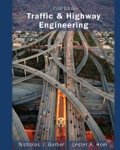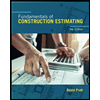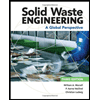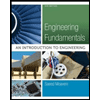
Concept explainers
(a)
The volume of traffic across the bridge.
Answer to Problem 3P
The volume of traffic across the bridge is
Explanation of Solution
Given:
The total cost to travel across bridge except tolls is expressed as,
Here,
The demand to travel across the bridge is,
Calculations:
Calculate volume of traffic across the bridge.
The total cost to travel across bridge except tolls is,
The volume across the bridge is,
Solve Equations (I) and (II).
Conclusion:
Therefore, the volume of traffic across the bridge is
(b)
The volume of traffic across the bridge if a toll of
Answer to Problem 3P
The volume of traffic across the bridge if a toll of
Explanation of Solution
Concept used:
Write the expression to calculate the volume expected for a
Here,
Calculations:
Calculate volume of traffic across the bridge if toll is increased to
The new cost of the cost of travel across bridge is,
Substitute
Calculate volume of traffic expected for a
Substitute
Conclusion:
Therefore, the volume of traffic across the bridge if a toll of
(c)
The volume of traffic across the bridge.
Answer to Problem 3P
The volume of traffic across the bridge is
Explanation of Solution
Given:
The total cost to travel across bridge including toll is expressed as,
Calculations:
Calculate volume of traffic across the bridge.
Substitute
Conclusion:
Therefore, the volume of traffic across the bridge is
(d)
The toll to yield the highest revenue for demand and supply function and the associated demand and revenue.
Answer to Problem 3P
The toll which yield the highest revenue for demand and supply function is
Explanation of Solution
Concept used:
Write the expression to calculate the revenue generated.
Here,
Calculations:
Assume the toll rate as
The new cost of the cost of travel across bridge is,
Substitute
Substitute
From the above equation, the toll which would yield the maximum revenue is 100 cents or
Substitute
Calculate the demand for travel across the bridge for maximum revenue.
Substitute
Conclusion:
Therefore, the toll which yield the highest revenue for demand and supply function is
Want to see more full solutions like this?
Chapter 2 Solutions
Traffic and Highway Engineering
- 1. Plot the SWRC (suction vs. volumetric water content) from the van Genuchten (1980) model for the following “base-case” parameters (assume m = 1-1/nvG): alpha vG = 0.35 kPa-1, nvG = 2.2,Delta res = 0.02, and delta S = delta sat = 0.45. These values are approximately representative of a sand.Perform a sensitivity analysis on each of the base case parameters (i.e., vary each by ±10% while holding the other three constant) to determine their relative effects on the SWRC. For example, how would a change in s alter the curve if the other base case parameters stay the same? In your answer, provide 4 plots for the parametric evaluation of each parameter as well as a brief qualitative explanation for each plot (for example, when investigating the effect of alpha vG, show the base-case curve and the curves with different values of alpha vG on the same plot). Be sure that suction is plotted on a logarithmic scale. Also, discuss how theparameters of the van Genuchten SWRC model might differ…arrow_forwardUsing AutoCAD and exact measure that numberarrow_forwardA fully grouted reinforced masonry wall is to be constructed of 8-in. CMU. The wall height is 18feet. It is assumed to be simply supported. The wall is to be designed for an out-of-plane seismicload of 52 lbs./ft.2, which can act in either direction. The wall also supports a roof dead load of600 lbs./ft. and a roof live load of 300 lbs./ft. along the wall length. The roof loads have aneccentricity of 2.5 inches. Since there is seismic load, load combinations (6) and (7) in Chapter 2of ASCE 7-22 should be considered. In these two load combinations,horizontal seismic loadhE =andvertical seismic loadvE = . You may ignorevE in this problem for simplicity. The masonryhas a specified compressive strength of 2,500 psi. (a) Use the strength design provisions of TMS402 to determine the size and spacing of the vertical bars needed. Use the P-δ analysis method inSection 9.3.4.4.2 of TMS 402 to determine Mu. (b) Repeat the design using the momentmagnification method in Section 9.3.4.4.3 instead.…arrow_forward
- The city's downtown area on Elm St, with its intricate network of roads and intersections, has long been a challenge for both seasoned travelers and newcomers alike. Given the lane configurations for the shown intersection, find the number of conflict points. Vehicle-to-vehicle conflicts (merge, diverge, and/or crossing conflicts) Vehicle-to-pedestrian conflicts Vehicle-to-bicycle conflictsarrow_forwardCan you please do hand calcs and breakdown each steparrow_forwardQ4. Statically determinate or indeterminate frame analysis by the stiffness method a) Determine the stiffness matrix of the frame as shown in Fig. 4. Nodes 1 and 3 are fixed supports. Assume I = 300(10%) mm, A = 10(103) mm², E = 200 GPa for each member. Indicate the degrees-of freedom in all the stiffness matrices. Use the values of L3-3.5 m, w = 24 kN/m and P = 30 kN. Note, L4-1.8L3 (i.e. 1.8 times L3). b) Determine all the displacement components at node 2 and all internal reactions at node 2. Show all calculations. c) Draw the BMD of the frame on the compression side showing all the salient values. Show all calculations. d) Repeat the problem using the Strand 7. Show the model with all the nodes and element numbers and boundary conditions. Submit a hard copy from Strand7 showing all the reactions (highlight these in the hard copy). Display the bending moment diagram for the frame. 4 e) Compare the BMD from Strand 7 with the theoretical one and compare the respective values of…arrow_forward
- Can you please break down all the hand calcs and make sure we answer the below. a Determine the global stiffness matrices (k’) of all truss members including correct degrees-of freedom (dof)-3x3 b Determine the global stiffness matrix (K) of the whole truss (include dof numbers) c i) Calculate vectors D and Q (4+4). ii) Show partition and solve KD=Q iii) Calculate all the member forces d i) Solve the problem using Strand7 (model) (You must model the beam property as truss) ii) Display of deflected shape, nodal displacements and member forces (3+3+3) e Comparison of member forces and comments , comparison of displacemnts and commnetsarrow_forwardYOU HAVE A UNIFORM SUBGRADE ELEVATION FOR YOUR BUILDING FOUNDATION THAT HASBEEN VERIFIED. YOUR SLAB IS DESIGNED TO BE 12 INCHES THICK.USING THE GIVENDIMENSIONS AROUND THE PROPOSED BUILDING FOUNDATION, CALCULATE THE CUBIC FEETAND THE CUBIC YARDS OF CONCRETE NEEDED FOR THE FOUNDATION **Sketch Attached**arrow_forwardWHAT ARE THE COORDINATES (N,E) AT POINT A AND POINT B IN THE SKETCH (ATTACHED)arrow_forward
- Can you please do with hand calcs and answer the following: a Determine the global stiffness matrix (K) of the beam including indicating correct degrees-of freedom (dof) b i) Calculate vectors D and Q ii) Show partition and solve KD=Q for D iii) Calculate all reactions c BMD & max BM, deflected shape d i) Solve the problem using Strand7 (model) ii) Display the deflected shape and BMD e Comparisons of reactions + Max BM including commentsarrow_forward5-1. Determine the force in each member of the truss, and state if the members are in tension or compression.arrow_forwardI have the correct answer provided, just lookng for a more detailed breadown of how the answer was obtained thanks.arrow_forward
 Traffic and Highway EngineeringCivil EngineeringISBN:9781305156241Author:Garber, Nicholas J.Publisher:Cengage Learning
Traffic and Highway EngineeringCivil EngineeringISBN:9781305156241Author:Garber, Nicholas J.Publisher:Cengage Learning Fundamentals Of Construction EstimatingCivil EngineeringISBN:9781337399395Author:Pratt, David J.Publisher:Cengage,
Fundamentals Of Construction EstimatingCivil EngineeringISBN:9781337399395Author:Pratt, David J.Publisher:Cengage, Solid Waste EngineeringCivil EngineeringISBN:9781305635203Author:Worrell, William A.Publisher:Cengage Learning,
Solid Waste EngineeringCivil EngineeringISBN:9781305635203Author:Worrell, William A.Publisher:Cengage Learning, Engineering Fundamentals: An Introduction to Engi...Civil EngineeringISBN:9781305084766Author:Saeed MoaveniPublisher:Cengage Learning
Engineering Fundamentals: An Introduction to Engi...Civil EngineeringISBN:9781305084766Author:Saeed MoaveniPublisher:Cengage Learning



